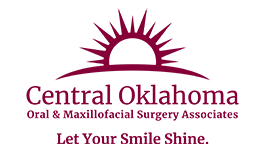25 Jul Do dental implants require special care?
 Patients who are getting dental implants after suffering tooth loss often ask about the steps necessary to care for the devices.
Patients who are getting dental implants after suffering tooth loss often ask about the steps necessary to care for the devices.
Indeed, patients should consult with the oral surgeon about caring for the dental implants as part of the treatment planning process. After all, it’s important to be prepared for any circumstances and proper care is necessary to maximize the lifespan of your dental implants.
When considering care for dental implants, patients should remember that dental implants are structurally similar to biological teeth. Therefore, patients can care for their dental implants using the same techniques that they do for their natural teeth. Dental implants can be brushed and flossed with a regular toothbrush and dental floss.
Although dental implants don’t require any major adjustments to a good dental hygiene routine, they do require that patients put in the effort that is necessary to maintain both dental implants and natural teeth. Use common sense. Be sure to brush at least twice a day if that hadn’t been part of your routine before, and floss every day.
Patients who are getting dental implants after suffering tooth loss often ask about the steps necessary to care for the devices.
If gum disease contributed to your tooth loss, you may want to consider adding an anti-bacterial mouthwash to your oral care regimen, as well.
Furthermore, the materials used to make the prosthetic teeth supported by the implant are quite strong, but they can still be damaged, just like natural tooth enamel can. Don’t do anything with your dental implants that you wouldn’t do with your natural teeth. Chewing on ice and biting on non-food objects like pencils and fingernails, for example, should be off limits.
Professional dental care is also an essential part of maintaining your dental implants. Schedule your routine exams and cleanings at least every six months, and possibly more frequently if you tend to accumulate plaque and tartar quickly. Also, inform your dental hygienist where the implant is located, as the hygienist may need to use special tools to clean your teeth in that area.
When planning for your dental implants, be sure that you know how to take care of them so that you can enjoy all of the benefits this treatment option has to offer. Ask either of our skilled oral surgeons if you have any questions about taking care of your dental implants.
